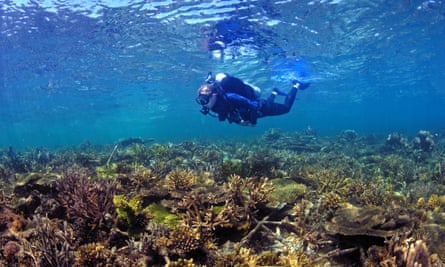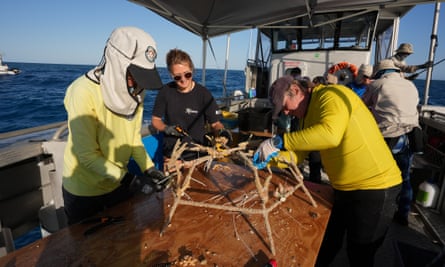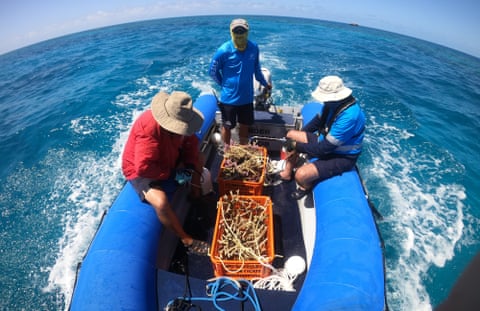When David Smith began studying marine biology in the late 90s, he didn’t imagine he’d be working at a food company. And yet, a quarter of a century later, the University of Essex professor finds himself into his third year as chief marine scientist at Mars (yes, the company that makes chocolate bars). While Smith concedes the gig was a little out of left field, the role is an opportunity for him to make a difference.
“I asked myself the question: where can I be more impactful?” he says of his decision to change tack after more than two decades of working in academia and with NGOs. “I thought that if I worked as a critical friend in an organisation and was able to steer that organisation even just a few degrees left or right, to try to get them to do the right thing and to make those tough choices, then the impact of my career would be much bigger than if I wrote another 200 scientific papers. You need to get in there and rip it apart.”

Despite Smith’s enthusiasm, it’s hard not to wonder: just how much crossover is there between the worlds of chocolate making and marine conservation? According to him, quite a lot, with the issues of water security and plastic pollution high on Mars’s agenda. But while the name Mars is synonymous with confectionery, pet food is the business’s biggest division, with many of Australia’s best-known brands falling under the Mars umbrella. One of these is the Dine brand – the driving force behind Hope Grows, a global reef restoration program.

Professor David Smith, marine biologist
“This is our planet and our ocean and we need to do something about it,” Smith says. “We face the very real threat that our ocean will be impacted to the point of no return over the next century, so we really need to do something about it, right now. And coral reefs are the canary in the coal mine.”
As anyone that’s followed the plight of the ocean knows, the past few decades have been rough. Climate change and rising temperatures have triggered coral bleaching as well as ocean acidification, which makes it harder for corals to build their skeletons. Although coral reefs occupy a tiny part of the ecosystem – coral reefs make up around 0.1% of the ocean – they play an important role in the marine environment, with about a quarter of ocean species relying on coral reefs for survival.
Although Dine Hope Grows was launched globally last year, the program spent almost two decades in testing and development. Most of this fine-tuning took place near the Indonesian island of Sulawesi, where scientists used different methods to rehabilitate a once flourishing coral reef that had been reduced to rubble following decades of dynamite fishing.

In the end, researchers settled on the use of reef stars, steel structures that they could seed with coral and place over existing coral reefs to encourage the regeneration of marine environments. Trials in Sulawesi were incredibly encouraging, with coral coverage across the reef exploding from a concerning 5% to, in some areas, 70% within three years.
Dine says the regeneration of coral wasn’t the program’s only win. As the coral reefs returned, so too did the fish, both in terms of biomass and the diversity of species. There were also positive outcomes on land: the restoration process created employment opportunities for coastal communities and provided locals with a sense of ownership of the project. “Each restoration project might involve 60, 70 individuals from a community,” Smith says.

Dine acknowledges that the program doesn’t increase the ability of reef environments to withstand climate crisis events, and is on a small scale in concentrated locations compared to the ocean as a whole, but the hope is that these projects raise the profile of the plight of coral reefs.
“We need to understand how to work with the ocean sustainably,” Smith says. “We don’t want to just continue as we are and then look back in 10 years’ time and think, why didn’t we do it differently? What a stupid social experiment that would be. We have to realise that we’re all part of the ecosystem.”
